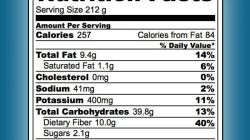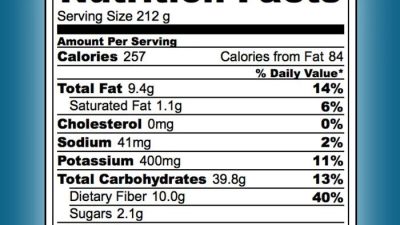Ingredient Analysis
Sausage egg and cheese mcmuffin nutrition – The Sausage Egg & Cheese McMuffin, a quintessential fast-food breakfast item, offers a convenient, albeit processed, meal. Understanding its nutritional profile requires examining the individual ingredients and the impact of their processing on their inherent nutritional value. This analysis will delve into the specific components of the McMuffin, comparing its sausage patty to alternative breakfast meats and highlighting the effects of processing on overall nutritional content.
Ingredient Breakdown and Nutritional Contributions
The McMuffin’s primary components—the sausage patty, egg, cheese, and English muffin—each contribute distinct nutrients. The sausage patty, typically composed of pork and beef, provides protein and fat, with varying levels of saturated and unsaturated fats depending on the specific recipe and processing. The egg offers high-quality protein, essential vitamins like choline and B vitamins, and various minerals. The cheese, usually a processed cheese slice, contributes additional protein, fat (mostly saturated), and calcium.
The English muffin, a baked product, supplies carbohydrates, primarily in the form of starch, along with small amounts of fiber and some B vitamins. The precise nutritional content varies slightly depending on the specific ingredients and portion sizes used. However, a general understanding of the macronutrient composition is crucial to evaluate the McMuffin’s overall nutritional impact. For instance, a typical McMuffin contains a significant amount of fat and saturated fat, primarily from the sausage and cheese.
The protein content is relatively high, stemming from the sausage, egg, and cheese, while carbohydrate intake is moderate, largely from the English muffin.
Impact of Processing Methods on Nutritional Value
The processing methods applied to each ingredient significantly affect their nutritional profile. The sausage patty undergoes substantial processing, including grinding, mixing with various additives (like salt, preservatives, and flavor enhancers), and cooking. This process can reduce the bioavailability of certain nutrients and increase the content of saturated fats and sodium. Similarly, the cheese slice is a processed cheese product, often containing emulsifiers, stabilizers, and other additives that alter its original nutritional composition compared to natural cheese.
Understanding the nutritional content of a Sausage Egg & Cheese McMuffin is key to mindful eating. Comparing it to other breakfast choices, like checking out the unfrosted strawberry pop tarts nutrition facts , helps you make informed decisions. Ultimately, balancing your breakfast choices contributes to a healthier and more energized you, so remember to choose wisely and enjoy your meal!
The English muffin, while less heavily processed than the sausage or cheese, still undergoes baking, which can affect the fiber content and glycemic index. The egg, while generally minimally processed, might undergo pasteurization, a process that can slightly alter its nutritional content, though the changes are usually minor. The combined effects of these processing methods can lead to a final product with a different nutritional profile than the sum of its unprocessed ingredients.
For example, the addition of salt during processing significantly contributes to the McMuffin’s high sodium content.
Sausage Patty Nutritional Profile Compared to Alternatives
The sausage patty in the McMuffin can be compared to other breakfast meats, such as turkey sausage or Canadian bacon. Turkey sausage generally contains less fat and saturated fat than pork sausage, often resulting in a lower calorie count. Canadian bacon, a leaner cut of pork, also offers a lower fat and calorie profile compared to the typical McMuffin sausage patty.
However, these alternative meats may not always provide the same level of protein or specific micronutrients as the McMuffin’s sausage patty. The nutritional differences between these breakfast meats highlight the importance of considering ingredient choices when aiming for a healthier breakfast. A consumer might opt for a McMuffin with a turkey sausage patty to reduce saturated fat intake, though this would come with a potential decrease in some nutrients.
The specific nutritional profile of each alternative meat depends heavily on the brand, preparation method, and ingredients used.
Nutritional Comparison

The Sausage Egg & Cheese McMuffin, a breakfast staple for many, presents a compelling case study in the nutritional landscape of fast food. Understanding its nutritional profile requires comparing it not only to similar fast-food options but also to healthier alternatives commonly considered for breakfast. This comparison allows for a more informed assessment of its impact on overall dietary intake.
Let’s delve into a comparative analysis, examining the nutritional content of the McMuffin against competitors and healthier breakfast choices. This will highlight the potential implications of its high fat and sodium content.
Comparison to Other Breakfast Sandwiches
The following list compares the Sausage Egg & Cheese McMuffin to three popular breakfast sandwiches from other fast-food chains. These comparisons illustrate the variability in nutritional content even within the same food category. Note that exact nutritional values may vary slightly depending on location and preparation.
- Starbucks Bacon Gouda Breakfast Sandwich: This sandwich often contains a higher calorie count and fat content than the McMuffin, due to the inclusion of cheese and bacon. It might also have a slightly higher sodium content.
- Dunkin’ Sausage, Egg & Cheese Croissant: The croissant’s added carbohydrates and fats generally lead to a higher calorie count compared to the McMuffin, with potentially similar or higher fat and sodium levels.
- Subway Egg & Cheese on a Flatbread: Depending on the ingredients chosen, Subway’s option might offer a slightly lower calorie and fat content, but sodium levels could still be comparable to the McMuffin.
Nutritional Comparison Table
The table below contrasts the Sausage Egg & Cheese McMuffin with healthier breakfast options. It focuses on calories, fat, and sodium, three key indicators of potential health impact. Values are approximate averages based on commonly available nutritional information.
| Item | Calories | Fat (g) | Sodium (mg) |
|---|---|---|---|
| Sausage Egg & Cheese McMuffin | 300-350 | 15-20 | 700-800 |
| 1 cup Oatmeal (plain) | 150-200 | 2-5 | 1-20 |
| 2 Eggs with 1 slice Whole-Wheat Toast | 200-250 | 10-15 | 300-400 |
Potential Health Implications of High Fat and Sodium Intake
The Sausage Egg & Cheese McMuffin’s relatively high fat and sodium content raises potential health concerns. High saturated and trans fat intake is linked to increased LDL (“bad”) cholesterol levels, a significant risk factor for cardiovascular disease. Excessive sodium consumption contributes to hypertension (high blood pressure), another major risk factor for heart disease and stroke. Regular consumption of foods high in these nutrients can, over time, increase the likelihood of developing these serious health conditions.
For example, a study published in the “Journal of the American Medical Association” demonstrated a strong correlation between high sodium intake and increased risk of stroke. The high calorie content also contributes to weight gain if not balanced with overall dietary intake and physical activity.
Serving Size and Dietary Considerations

The Sausage Egg & Cheese McMuffin, a popular breakfast sandwich, presents a convenient yet calorie-dense option. Understanding its serving size and nutritional profile is crucial for making informed dietary choices. This section delves into the serving size’s impact on daily caloric intake and explores the suitability of this breakfast item for individuals with specific dietary needs.A standard Sausage Egg & Cheese McMuffin typically contains approximately 300-310 calories, depending on slight variations in preparation and location.
This represents a significant portion of the recommended daily caloric intake for many adults, particularly those aiming for weight management. Consuming this sandwich as part of a larger meal can quickly exceed recommended daily calorie limits. For example, adding a side of hash browns and a sugary beverage could easily push the total caloric intake well beyond 500 calories, a substantial portion of a daily allowance for many.
Caloric Impact and Daily Intake
The calorie count of a Sausage Egg & Cheese McMuffin should be considered within the context of an individual’s overall daily caloric needs. These needs vary significantly based on factors like age, sex, activity level, and metabolic rate. For someone with a moderately active lifestyle and a recommended daily caloric intake of 2000 calories, a single McMuffin accounts for approximately 15-16% of their daily caloric needs.
For individuals with lower caloric requirements, such as those aiming for weight loss, this percentage increases considerably, highlighting the importance of mindful consumption. Consideration should be given to balancing this relatively high-calorie breakfast with lower-calorie choices throughout the day to maintain a healthy caloric balance.
Dietary Suitability for Specific Conditions, Sausage egg and cheese mcmuffin nutrition
The Sausage Egg & Cheese McMuffin’s suitability for individuals with specific dietary restrictions or health conditions requires careful consideration.
- High Cholesterol: The sausage patty contains saturated fat, which can elevate cholesterol levels. Individuals with high cholesterol should limit their consumption of this sandwich or choose alternatives with lower saturated fat content.
- Diabetes: The high carbohydrate content from the English muffin and relatively high fat content can impact blood sugar levels. Individuals with diabetes need to carefully monitor their blood sugar after consuming this sandwich and adjust their insulin or medication accordingly. Portion control and mindful consideration of other dietary choices throughout the day are crucial.
- Sodium Sensitivity: The McMuffin is relatively high in sodium, contributing to potential issues for individuals with hypertension or sodium sensitivity. Reducing sodium intake is crucial for maintaining healthy blood pressure, and this sandwich should be consumed sparingly by those watching their sodium levels.
- Other Dietary Restrictions: Individuals following specific diets, such as vegetarian, vegan, or gluten-free diets, should avoid this sandwich as it contains meat and gluten. McDonald’s offers other options that may be more suitable for these dietary needs.
Alignment with Dietary Guidelines
The Sausage Egg & Cheese McMuffin often falls short of meeting recommended dietary guidelines due to its high saturated fat, sodium, and calorie content. Dietary guidelines generally recommend limiting saturated fat and sodium intake to promote cardiovascular health. The sandwich also lacks significant amounts of fiber and certain essential vitamins and minerals. While it provides some protein from the egg and sausage, it is not a nutritionally balanced breakfast option.
A balanced breakfast should incorporate a variety of foods to ensure adequate intake of essential nutrients. For instance, incorporating fruits, vegetables, and whole grains alongside lean protein sources offers a far more nutritionally complete and beneficial start to the day.
Detailed FAQs: Sausage Egg And Cheese Mcmuffin Nutrition
What are the potential long-term health effects of regularly consuming Sausage Egg & Cheese McMuffins?
Regular consumption of high-fat, high-sodium foods like the McMuffin can increase the risk of heart disease, weight gain, and other health problems over time. It’s best enjoyed occasionally as part of a balanced diet.
Are there vegetarian or vegan alternatives to the Sausage Egg & Cheese McMuffin?
Many restaurants offer vegetarian and vegan breakfast sandwiches with plant-based sausage patties, egg substitutes, and cheese alternatives. McDonald’s itself doesn’t currently offer a direct vegan equivalent.
Does the Sausage Egg & Cheese McMuffin contain any common allergens?
Yes, it contains dairy (milk in the cheese), eggs, and wheat (in the English muffin). Always check the ingredient list for potential allergens before consuming.










